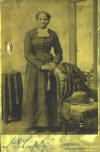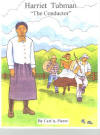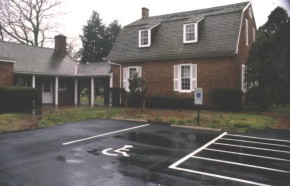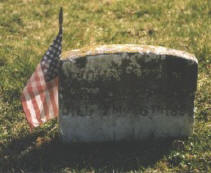|
CAMDEN
FRIENDS MEETING
Burial Place of John Hunn
This House of worship, built in
1805, was first a Preparative Meeting under the care of Motherkiln (Murderkill) Monthly Meeting of the Religious
Society of Friends (Quakers). In 1830, Camden Monthly
Meeting was formed by uniting with Motherkiln and Duck Creek
Monthly Meeting. It has since absorbed all other Quaker
Meetings in Kent and Sussex Counties. Many members were
active in the anti-slavery movement. Local Quakers such as
the Hunn, Jenkins, and Cowgill families were well known for
their efforts in support of abolition. Some served as
conductors on the Underground Railroad, providing
“safehouses” and passing fugitive slaves northward. Of
particular note was John Hunn, the Chief Engineer of the
Underground Railroad in Delaware. A resident of the
Middletown area during much of his life, Hunn was
responsible for the operation of the network that
transported thousands of escapees through Delaware to
Wilmington, and thence to freedom. A man of great modesty,
he declined to take credit for his heroic efforts. He was
laid to rest in the adjoining burial ground following his
death in 1894.
Camden Friends Meeting was
listed in the National Register of Historic Places in 1973.
Delaware Public Archives – 2002
KC – 73
Location: 122 E Camden-Wyoming Avenue, Camden, Delaware
(302) 698-3324.
The Delaware Public Archives
operates a historical markers program as part of its
mandate. Markers are placed at historically significant
locations and sites. For more information on this program,
please contact Russ McCabe (302) 744-5000.
JOHN HUNN (1814-1894)
Chief Engineer of the
Underground Rail Road in the state of Del. and the richest
man in Del. He was convicted and fined in 1848 by the U.S.
Dist. Court. Later he was fined twice for $10,000.00 each by
Del., but was advised the fines wouldn’t be imposed if he
would promise not to continue his efforts to aid fugitives
in their escape from slavery. Instead, Hunn vowed never to
withhold a helping hand from the down-trodden in their hour
of distress. His great land holdings and all his possessions
were sold at sheriff’s sale. His family was left utterly
destitute, but he continued his efforts to abolish slavery
until the great proclamation by Abraham Lincoln.
“I ask no other reward for my efforts than to feel I have
been of service to my fellow-men. No other course would have
brought peace to my mind.”
His grave is adjacent to this
Meeting House and this was his stepping stone and hitching
post.
His son “honest” John Hunn Jr.
while Gov. of Del. 1901-05 was the first to advocate that
women be admitted to the Univ. of Del. and that a paved
highway be constructed the entire length of Del. He is also
buried here. |




